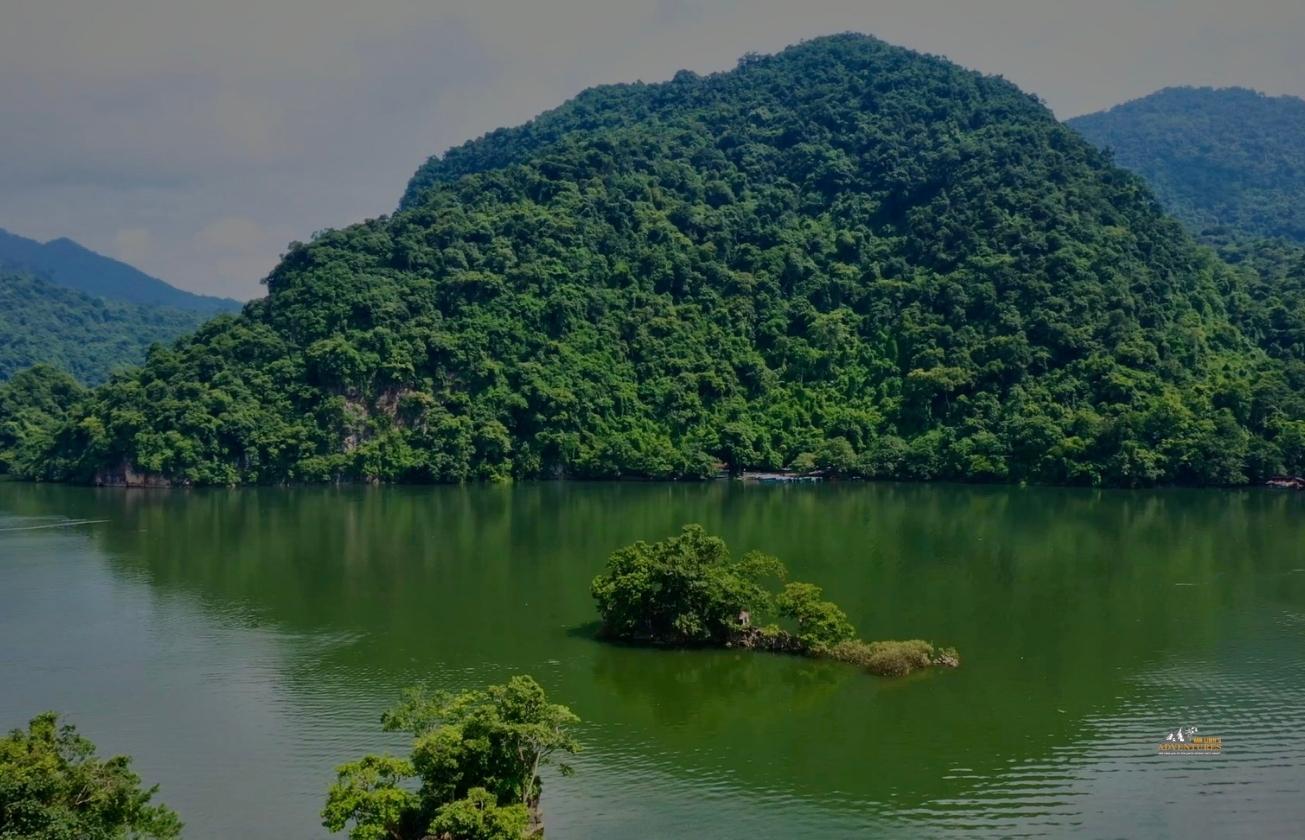Covering almost 650 hectares and surrounded by the rocky peaks and lush forests of
Ba Be National Park, Ba Be Lake in Bac Kan province holds a special place as one of Vietnam's most important natural wonders. It's the country's largest freshwater lake and ranks among the world's top 20, making its preservation vital.
Local people call Ba Be lake "Slam Pé", meaning "three lakes". The name comes from the lake, which is the convergence of three tributaries of Pé Lam, Pé Lu and Pé Leng. Aside from the pristine, enchanting beauty of the nature and the local people here, visitors will also have chance to hear the fascinating legend of Ba Be lake, which has been passed down from generation to generation.
One year, during the festival, an unfamiliar old woman appeared and begged for some food, but everyone ignored her because of her appearance and smell. The old woman looked scary: her body was very thin, full of scars and dirt covered by clothes that looked like rags with unpleasant stench emitted from her.
Wherever she went she kept repeating in a low voice like she could faint anytime: "I’m so hungry! Please give me something to eat!" but no one showed any interest in her, they just looked at her with a disgusted look and turned away without mercy. Some even cursed at her and chased her away from the crowd.
At the end of the day, the old woman had no choice but to trudge slowly to the intersection where she met the lenient family of a widow with her son on the way back to their house. Sympathizing with the poor old lady, the widow took her home and provided her with some food. She even offered the woman to stay overnight.
The evening passed as usual until the widow and her son suddenly woke up by a strange noise coming from the room where the old lady was staying. Carefully reaching to the door, they saw a giant dragon with its head hung up on the rafters and its tail stuck to the ground, curled up in the corner, emitting a bright light. They were totally horrified and did not know how to react! So in the end they decided to close their eyes, hold their breath, lay still and let things be. Luckily, nothing happened to them.
The next morning, the dragon was gone and instead the sick beggar was there, waiting for them to say goodbye. Before leaving, the old woman told the lady that the area would soon be flooded, then she handed her a bag of ashes, instructing the widow to scatter them around the house.
Hearing the shocking news, the anxious mother asked the old woman how to save people from the village from the flood. The old lady picked up a grain of rice, broke it into two, then gave them to the widow and told her to use it for good deeds. Suddenly, the old woman disappeared into thin air.
 Widow's island - The island houses in the legend of Ba Be
Widow's island - The island houses in the legend of Ba Be
The widow and her son hurried to the village to tell their story and warn them from the flood, but no one believed them. As predicted, that night, while everyone was keeping busy, a massive of water gushed up strongly on the ground. Where the water sprayed, landslide happened. The villagers were horrified, jostling each other to escape. Suddenly, a rumbling shook the ground, opening the earth and swallowing houses in an instant.
Surprisingly, the small house of the kind-hearted widow and her son remained above the water surface. As the water levels raised, the ground around the house raised at the same time.
Grieved by this sudden tragedy, the widow remembered about the rice husks given by the old lady and ped the two pieces of rice into the water. A second later, two wooden boats appeared! Despite the heavy wind and rain, the widow and her son tried their best to save the villagers. When the water receded, the collapsed land turned into a large lake - Ba Be, and the ground of the widow’s house turned into a small island in the middle of the lake. People named it "Go Ba Goa" which means "Widow’s Island".
This touching tale is passed down from generation to generation in order to educate the people about love, sympathy, and compassion, and that those who live in good faith, will receive good in return.